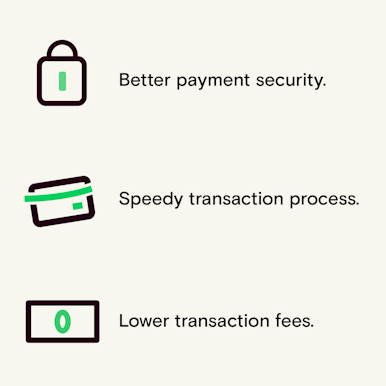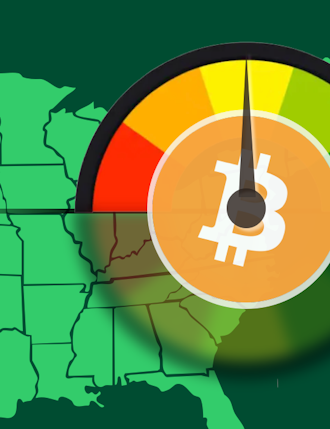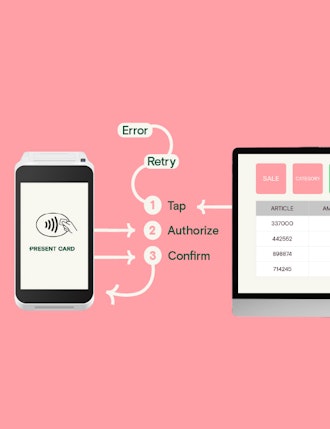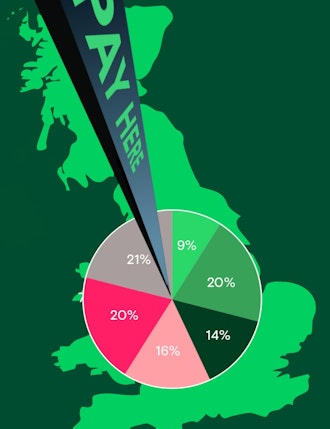Cryptocurrency reframes what is digital money by separating payments from traditional banking and card networks, using decentralized blockchain infrastructure instead. That separation creates new possibilities, but current issues with volatility, regulation, and everyday usability are keeping cryptocurrency at the margins of everyday payments - rather than the center.
Key Insights
- The question of what is digital money is shifting from theory to practice, as cryptocurrencies test whether they can work in everyday payment scenarios, not just investment use cases.
- Blockchain payments can speed up settlement and transparency, but these advantages don’t automatically translate into better checkout experiences.
- Price volatility and inconsistent acceptance remain the biggest obstacles to cryptocurrency being used for everyday purchases.
- Understanding the difference between CBDC and cryptocurrency matters because one extends existing money systems while the other sits largely outside them.
- For both consumers and merchants, trust, regulation and familiarity matter more than technical innovation.
- Cryptocurrency’s role in the future of payment technology is less about replacing existing systems and more about influencing how speed, programmability, and cross-border payments evolve.
Don't have time to read more now? Sign up to our newsletter to get the latest insights directly in your inbox.
What are cryptocurrencies and crypto payments?
As excited as we are to dive into crypto payments and how cryptocurrencies function in the modern world, let us first tackle what they are.
Cryptocurrencies are digital or virtual currencies that are secured by encryptions. They are based on decentralized networks, allowing them to exist outside of the control of governments and central authorities. In simpler terms, these are virtual currencies you can use to convert or use to pay for products and services online.
It’s a digital asset that features highly secure, cheap, and fast money transfers and decentralized systems that are separated from central authorities. Theoretically, this leaves them immune from government interference or manipulation. It is also a product of blockchain technology.
On the other hand, crypto payments or cryptocurrency payment gateways are payment processors for cryptocurrency, similar to those used in banks. This allows you to transact digital payments and instantly receive fiat currency in exchange. Through these platforms, crypto payments are steadily being accepted by merchants worldwide.
The landscape of cryptocurrency payments
Cryptocurrency has become one of the most robust financial innovations in recent years. The COVID-19 pandemic indirectly helped the industry in stepping into the mainstream as social distancing and quarantine protocols emerged. Many were forced to develop ways to utilize technology and digital platforms.
According to CoinMarketCap, the Cryptocurrency market value is at US$1.9 trillion as of February 2022 and continues to grow as traditional banks and authorities begin to recognize and adapt cryptocurrency as part of their financial system. Although the industry renders speculation about cryptocurrency, countries have become proactive in regulating cryptocurrency as the world further dives into its digital age.
In 2024 alone, the global number of crypto users is estimated to have grown by nearly 40 million, a percentage of which is implementing merchant payments with their cryptocurrencies. Countries such as India, USA, Nigeria, Vietnam, and UK are seen to be the heaviest users of cryptocurrency globally.

However, according to our latest survey, crypto usage remains heavily concentrated among younger users and skews significantly male, highlighting an imbalance in who is participating in the space so far.
The potential of cryptocurrency as a mainstream payment method
Everyone strives to achieve accessibility, security, and convenience when it comes to managing their finances. As cryptocurrency continues to grow, consumers and merchants worldwide have been getting onboard with investing into cryptocurrency and digital coins to further ease their access to payment options online.
Cryptocurrency boasts numerous features such as:
-
- Better payment security. Cryptocurrencies are based across decentralized networks, the chances of security breaches such as scams, cyber attacks, counterfeiting, and double-spending is significantly lowered.
- Speedy transaction process. As it operates solely on its own and without any intermediary third-party processes, crypto transactions prove to be faster in comparison to traditional payment methods.
- Lower transaction fees. Cryptocurrencies in general charge music lower fees in comparison to other mainstream payment methods that are widely used today.

To welcome cryptocurrencies, industries and governments worldwide have been actively adapting such platforms to help improve financial systems and overall embrace the world’s shift to highly advanced technologies.
Implications of integrating cryptocurrency on merchants
It is no secret that cryptocurrency is taking the world by storm. It’s popularity is rising among consumers, partly due to its potential to provide more seamless and secure financial transactions.
As highlighted in our representative US survey, 62% of Americans either already use crypto for purchases or are open to doing so, and with policy moving fast, we expect to see more and more businesses begin accepting digital currencies in the near future.
Cryptocurrency can provide your business benefits such as:
New consumer demographics
Integration of new technologies placing your company ahead of its competitors
Access to new capitals and liquidation pools
Provides options that are not available with fiat currency
Can serve as an effective alternative or balancing assets to cash
Crypto payments opens new doors to businesses who are venturing and maximizing digital platforms as their main gateway for receiving transactions. Doing so can remove barriers and help them connect much easier with their clients whether locally or internationally.
The future of cryptocurrency
It is important to keep in mind that, despite being a popular platform among numerous users, cryptocurrency and blockchain is still early in its evolution process. The future of crypto payments as a mainstream payment method is however scaling at a promising rate. Certain sectors are considering opening and regulating financial systems to adopt and recognize cryptocurrency legally.
"The rise of digital payments has provided a gateway for Cryptocurrency to establish itself as a worthwhile option providing security, speed, and accessibility."
It’s increasing volume of investors and consumers provide a bright and promising future for the digital currency as it caters to the growing needs of consumers today.
Follow us on LinkedIn for more industry news.
Interested in reading more around this subject? Here are some useful articles…












